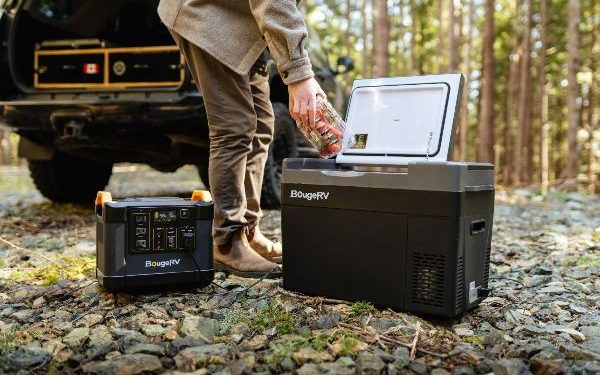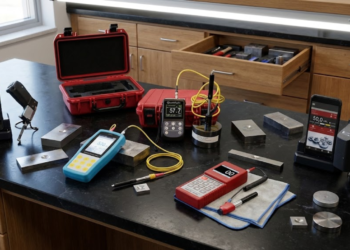Camping is one of the best ways to disconnect from the hustle and bustle of everyday life and reconnect with nature. However, for many modern campers, comfort is still a priority. Two essential pieces of equipment that can significantly enhance your camping experience are a camping water heater and a 12V RV refrigerator. This comprehensive guide will explore the benefits, types, and considerations for both, ensuring you have all the information you need for your next outdoor adventure.
Introduction to Camping Water Heaters
Camping water heater are portable devices designed to heat water for various uses, including showers, cooking, and cleaning. They can transform your camping experience, providing you with the convenience of hot water even in the most remote locations.
Benefits of a Camping Water Heater
- Comfortable Showers: After a long day of hiking or exploring, a hot shower can be incredibly refreshing. Camping water heaters allow you to maintain personal hygiene comfortably.
- Cooking Convenience: Hot water is essential for cooking various meals, from pasta to hot beverages. A camping water heater makes meal preparation quicker and more efficient.
- Cleaning Efficiency: Washing dishes and utensils with hot water is more effective at removing grease and food residues, ensuring your camping gear stays clean and hygienic.
- Medical Needs: Hot water can be crucial for certain medical needs, such as cleaning wounds or providing hot compresses.
Types of Camping Water Heaters
- Propane Water Heaters: These are among the most popular due to their efficiency and ease of use. They use propane gas to heat the water, providing a steady and reliable source of hot water. They are ideal for car camping or RV trips where carrying a propane tank is feasible.
- Electric Water Heaters: Suitable for campsites with access to electricity, these heaters plug into a power source and heat water quickly. They are convenient and often come with adjustable temperature settings.
- Battery-Powered Water Heaters: These are highly portable and ideal for backpacking or remote camping locations where traditional power sources are unavailable. They typically run on rechargeable batteries.
- Solar Water Heaters: Eco-friendly and cost-effective, solar water heaters use the sun’s energy to heat water. They are perfect for sunny climates but may be less effective in cloudy or cold conditions.
Considerations When Choosing a Camping Water Heater
- Portability: Consider the weight and size of the heater, especially if you plan on hiking or carrying it over long distances.
- Fuel Source: Determine which fuel source is most convenient and readily available for your camping needs.
- Heating Capacity: Check the water heater’s capacity to ensure it meets your hot water needs. Larger groups may require a heater with a higher capacity.
- Safety Features: Look for features such as automatic shut-off, temperature controls, and built-in safety mechanisms to prevent accidents.
Introduction to 12V RV Refrigerators
A 12V RV refrigerator is a compact, energy-efficient fridge designed to run on a 12-volt power system, commonly found in RVs and boats. These refrigerators are crucial for keeping your food and beverages cold while on the road or at a campsite.
Benefits of a 12V RV Refrigerator
- Food Preservation: Keep perishable food items fresh and safe to eat, reducing the risk of foodborne illnesses.
- Convenience: Access to cold drinks and fresh food enhances your camping experience, making meal times more enjoyable.
- Energy Efficiency: Designed to run on low power, 12V refrigerators are highly efficient, preserving battery life and reducing energy consumption.
- Portability: Compact and lightweight, these refrigerators are easy to transport and fit comfortably in most RVs, boats, or even cars.
Types of 12V RV Refrigerators
- Compressor Refrigerators: These are the most common and efficient type of 12V RV refrigerators. They work similarly to household fridges, using a compressor to cool the interior. They are highly effective, even in high ambient temperatures.
- Thermoelectric Refrigerators: These use the Peltier effect to cool the interior. They are lightweight and inexpensive but less efficient than compressor models, especially in hot weather.
- Absorption Refrigerators: These use a heat source (propane, electric, or battery) to circulate a refrigerant. They are silent and can run on multiple power sources but are generally less efficient than compressor models.
Considerations When Choosing a 12V RV Refrigerator
- Size and Capacity: Consider the amount of space available in your RV and the volume of food and beverages you need to store.
- Power Consumption: Check the refrigerator’s power requirements to ensure it is compatible with your RV’s electrical system.
- Cooling Efficiency: Look for a model that performs well in varying ambient temperatures, ensuring consistent cooling.
- Durability: Choose a refrigerator built to withstand the rigors of travel and outdoor conditions.
Enhancing Your Camping Experience with a Camping Water Heater and 12V RV Refrigerator
Combining the convenience of a camping water heater with the practicality of a 12v rv refrigerator can significantly enhance your camping experience. Here’s how:
- Meal Preparation and Storage: With hot water readily available, you can prepare a wider variety of meals. Pair this with a 12V refrigerator to store fresh ingredients, leftovers, and beverages, ensuring you have delicious meals throughout your trip.
- Hygiene and Comfort: Enjoy the luxury of hot showers and easily clean dishes and utensils, maintaining a higher standard of hygiene and comfort.
- Energy Efficiency: Both devices are designed to be energy-efficient, allowing you to make the most of your available power sources without draining your batteries.
- Safety and Convenience: Modern camping water heaters and 12V refrigerators come with numerous safety features, making them convenient and safe to use even for novice campers.
Tips for Using Camping Water Heaters and 12V RV Refrigerators
- Proper Ventilation: Ensure proper ventilation for propane and absorption refrigerators to prevent the buildup of harmful gases. Similarly, use camping water heaters in well-ventilated areas to avoid carbon monoxide buildup.
- Regular Maintenance: Perform regular maintenance on both devices to ensure they operate efficiently. Clean the refrigerator coils and check for any gas leaks in propane water heaters.
- Optimize Power Usage: Use energy-efficient practices, such as pre-cooling your refrigerator before your trip and only heating the water you need, to conserve power.
- Weather Considerations: Be mindful of the weather conditions. Solar water heaters may be less effective in cloudy weather, while thermoelectric refrigerators may struggle in extreme heat.
Conclusion
Investing in a camping water heater and a 12V RV refrigerator can transform your camping experience, bringing the comforts of home to the great outdoors. By choosing the right equipment and using it efficiently, you can enjoy hot showers, fresh food, and cold drinks, no matter where your adventures take you. Whether you’re a seasoned camper or new to the world of outdoor living, these devices offer the convenience and reliability needed to make every camping trip enjoyable and memorable.




![7 Best POS Software in the UK [2026 Edition]](https://todaynews.co.uk/wp-content/uploads/2026/02/7-Best-POS-Software-in-the-UK-2026-Edition-360x180.png)







































































